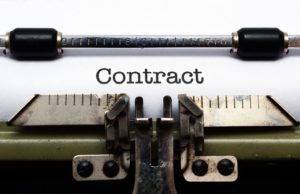Quick links, bringing you great articles on writing from all over the web.
Do you Kindle Scout? I do, as a reader I love it. I love being able to help authors generate buzz for their titles and finding new works to read. If your book is selected by Amazon, you get a contract and I get a free book.
Even if your book doesn’t get published by Amazon, you can still self-publish. The readers who voted for you are notified so they can buy the story. I have, especially if the price is right. Katherine Hayton would know how great Kindle Scout is for authors. Check out her Kindle Scout experienc at Self Publishing Advice Center
~ * ~
Publishing: Kindle Scout Case Study
 By Katherine Hayton on July 14, 2016
By Katherine Hayton on July 14, 2016
New Zealand novelist Katherine Hayton shares her inspiring success story about her fourth novel’s success in a Kindle Scout campaign, leading to a publishing contract with Amazon’s own imprint, Kindle Press.
Back in January, I ran a Kindle Scout campaign for my fourth full-length novel, The Three Deaths of Magdalene Lynton, and was accepted for publication by Kindle Press on the 8th February. After the effort of the campaign, I was excited to be selected, and so far my experience with Kindle Press has shown me they can sell a lot more of my books than I could manage on my own. I’m in my second month (release date 29th March) and I think I’ll have earned out my advance by the end of this month, or early next month, so it seems on track with their expectation of 25k over five years.
Regular Promotions by Kindle
Because they’re an Amazon imprint, they have access to place their published books on the advertising slots available to Amazon, and their aim is to place each book in some kind of promotion every ninety days or so. These range from month long $1.99 promotions in genre selections to individual book titles featured on the $0.99 Kindle Daily Deals. From talking with other authors in Kindle Press, there are mixed results among the books they’ve selected. Some authors have taken a year or more to earn out their advance of $1,500, while others have earned over $12,000 in their first year.
Degree of Author Control
An author with Kindle Press retains a lot more control than they would with a larger press, so I had final say over all edits, title, cover, and book description. Anything else (eg categories) can be suggested but not necessarily taken on board. The pricing is determined by word count and seems unshakable apart from a book’s inclusion in discounted pricing promotions. If there’s anything about the book that Kindle Press thinks will harm the chances of promotion slots, they’ll discuss it directly with the author so they have the chance to either change it or stick to their own vision.
~ * ~
If you liked this article, please share. If you have suggestions for further articles, articles you would like to submit, or just general comments, please contact me at paula@publetariat.com or leave a message below.
Save
Save


 I wish I could tell you that proofreading will always cost one cent per word, copyediting two cents per word, and developmental editing three cents per word, but the truth is much hazier than that.
I wish I could tell you that proofreading will always cost one cent per word, copyediting two cents per word, and developmental editing three cents per word, but the truth is much hazier than that. Over the past few months, we’ve talked about
Over the past few months, we’ve talked about  5 Bad Reasons for Author Blogs
5 Bad Reasons for Author Blogs by Elizabeth S. Craig, @elizabethscraig
by Elizabeth S. Craig, @elizabethscraig by Keely Brooke Keith
by Keely Brooke Keith You’ve written a great book and—if you’ve self-published—probably shelled out for the services of a good editor and cover designer. The last thing you want is to pay for a publicist. But in a sea of authors, how will potential readers know about your book?As a traditional-turned-hybrid author publishing with She Writes Press, I foot the bill for all the publishing costs but reap a much higher percentage of royalties for both print and ebook sales for my debut memoir,
You’ve written a great book and—if you’ve self-published—probably shelled out for the services of a good editor and cover designer. The last thing you want is to pay for a publicist. But in a sea of authors, how will potential readers know about your book?As a traditional-turned-hybrid author publishing with She Writes Press, I foot the bill for all the publishing costs but reap a much higher percentage of royalties for both print and ebook sales for my debut memoir,  Today’s guest post is by top Amazon reviewer Gisela Hausmann. This content originally ran on the Huffington Post, and it is reprinted here with her permission.
Today’s guest post is by top Amazon reviewer Gisela Hausmann. This content originally ran on the Huffington Post, and it is reprinted here with her permission. When I talk with authors about
When I talk with authors about  One of the things a good copyeditor will do, beyond dealing with infelicities of grammar, syntax, style, composition, and general meaning, is cover your back. And I mean totally cover it.
One of the things a good copyeditor will do, beyond dealing with infelicities of grammar, syntax, style, composition, and general meaning, is cover your back. And I mean totally cover it. Hi everyone! This is the first installment of a new series I’m going to be writing here at Pub Crawl: Clause by Clause. As our resident contracts expert, I’m going to do my best to demystify this part of the publishing process for you, one clause at a time. Today I’m talking about Option Clauses.What is an Option Clause?
Hi everyone! This is the first installment of a new series I’m going to be writing here at Pub Crawl: Clause by Clause. As our resident contracts expert, I’m going to do my best to demystify this part of the publishing process for you, one clause at a time. Today I’m talking about Option Clauses.What is an Option Clause? A mind-boggling 78 percent of Americans have a social media profile. And a little over half of them are on more than one channel. It is a given that authors can develop loyal audiences and sell more books with the help of social media. But how many social media channels are enough?
A mind-boggling 78 percent of Americans have a social media profile. And a little over half of them are on more than one channel. It is a given that authors can develop loyal audiences and sell more books with the help of social media. But how many social media channels are enough? Part of the How They Do It Series
Part of the How They Do It Series There are many places where readers can find and download e-books. There are a number of online retailers such as Amazon, Barnes and Noble and Kobo that sell them directly. Your local library likely has a robust digital collection or sometimes piracy is just a click away. Good e-Reader has been running a poll for the past three weeks where we asked the question “where do you get your e-books from?” Over 827 people responded and we now have some fairly comprehensive data.
There are many places where readers can find and download e-books. There are a number of online retailers such as Amazon, Barnes and Noble and Kobo that sell them directly. Your local library likely has a robust digital collection or sometimes piracy is just a click away. Good e-Reader has been running a poll for the past three weeks where we asked the question “where do you get your e-books from?” Over 827 people responded and we now have some fairly comprehensive data. By Katherine Hayton on July 14, 2016
By Katherine Hayton on July 14, 2016